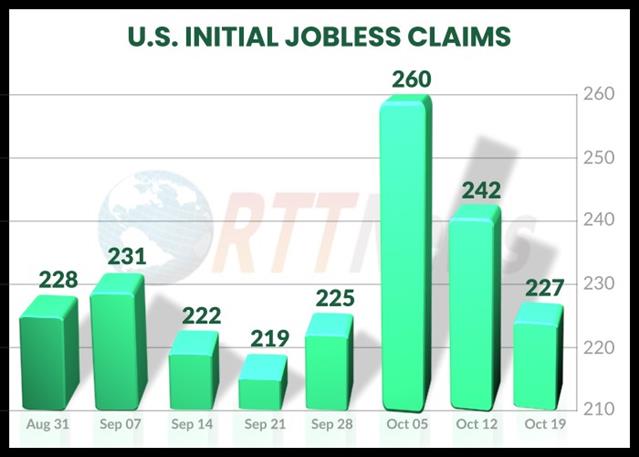U.S. Stocks Close Mostly Higher As Retail Sales Fall Much More Than Expected
Stocks showed a lack of direction early in the session on Thursday but moved mostly higher over the course of the trading day. The major averages extended the significant rebound seen during Wednesday’s session, with the S&P 500 reaching a new record closing high.
The major averages finished the day just off their highs of the session. The Dow jumped 348.85 points or 0.9 percent to 38,773.12, the Nasdaq rose 47.03 points or 0.3 percent to 15,906.17 and the S&P 500 climbed 29.11 points or 0.6 percent to 5,029.73.
The higher close on Wall Street came as a Commerce Department report showing a much bigger than expected decrease in U.S. retail sales in the month of January led to renewed optimism about the outlook for interest rates.
The Commerce Department said retail sales slid by 0.8 percent in January after climbing by a downwardly revised 0.4 percent in December.
Economists had expected retail sales to edge down by 0.1 percent compared to the 0.6 percent increase originally reported for the previous month.
Excluding sales by motor vehicle and parts dealers, retail sales fell by 0.6 percent in January after rising by 0.4 percent in December. Ex-auto sales were expected to rise by 0.2 percent.
“The lower-than-forecast retail sales number could be viewed as a positive for those looking for an early rate cut,” said Larry Tentarelli, Chief Technical Strategist, Blue Chip Daily Trend Report.”
The Federal Reserve also released a report showing industrial production in the U.S. unexpectedly edged slightly lower in the month of January.
The Fed said industrial production slipped by 0.1 percent in January compared to economist estimates for a 0.3 percent increase.
Meanwhile, the Labor Department released a report showing an unexpected decline in first-time claims for unemployment benefits in the week ended February 10th.
The report said initial jobless claims fell to 212,000, a decrease of 8,000 from the previous week’s revised level of 220,000.
Economists had expected initial jobless claims to inch up to 220,000 from the 218,000 originally reported for the previous week.
The Labor Department also released a separate report this morning showing an unexpected increase U.S. import prices in the month of January.
Sector News
Gold stocks turned in some of the market’s best performances on the day, resulting in a 3.4 percent spike by the NYSE Arca Gold Bugs Index.
The rally by gold stocks came amid an increase by the price of the precious metal, with gold for April delivery climbing $10.60 to $2,014.90 an ounce.
A sharp increase by the price of crude oil also contributed to considerable strength among energy stocks. With crude for March delivery jumping $1.39 to $78.03 a barrel, the Philadelphia Oil Service Index surged by 3.4 percent and the NYSE Arca Oil Index shot up by 2.4 percent.
Significant strength was also visible among computer hardware stocks, as reflected by the 3.1 percent gain posted by the NYSE Arca Computer Hardware Index.
Steel, banking and commercial real estate stocks also saw notable strength on the day, moving higher along with most of the other major sectors.
Other Markets
In overseas trading, stock markets across the Asia-Pacific region moved mostly higher during trading on Thursday. Japan’s Nikkei 225 Index shot up by 1.2 percent, while Hong Kong’s Hang Seng Index rose by 0.4 percent.
The major European markets also moved to the upside on the day. While the French CAC 40 Index advanced by 0.9 percent, the German DAX Index increased by 0.6 percent and the U.K.’s FTSE 100 Index climbed by 0.4 percent.
In the bond market, treasuries pulled back off their early highs but remained in positive territory. As a result, the yield on the benchmark ten-year note, which moves opposite of its price, fell by 2.7 basis points to 4.240 percent after hitting a low of 4.191 percent.
Looking Ahead
A report on producer price inflation is likely to be in focus on Friday, while traders are also likely to keep an eye on reports on consumer sentiment and housing starts.



